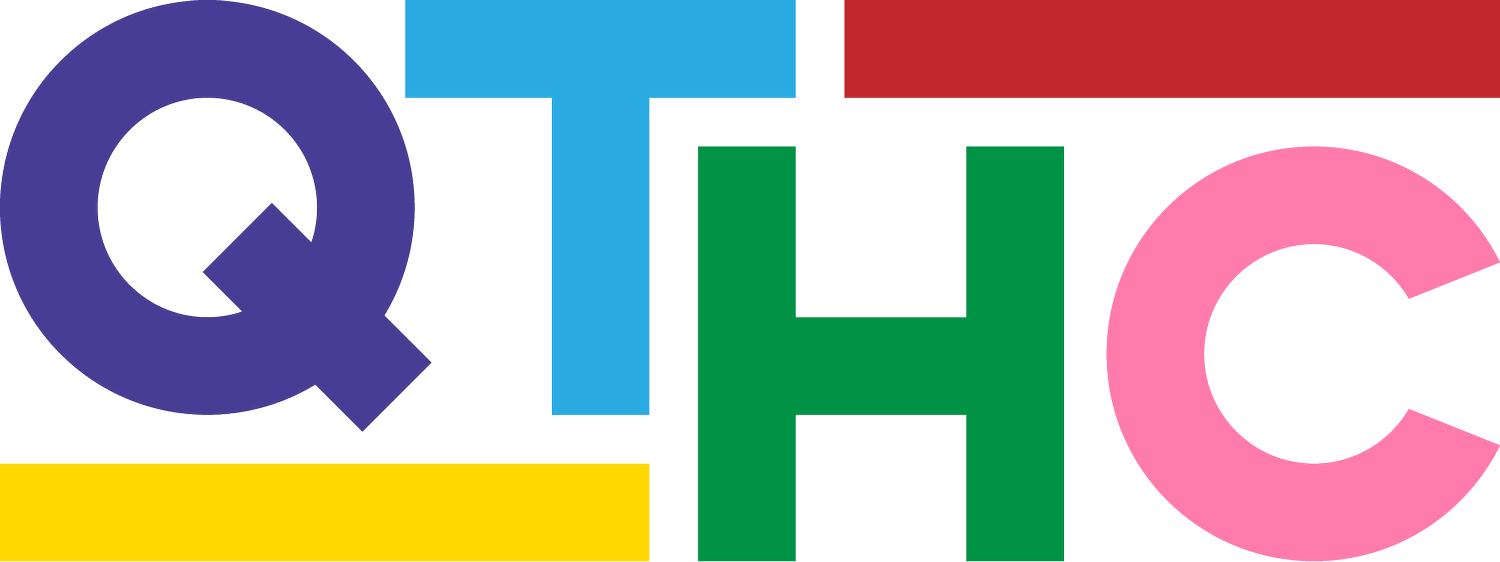Spectrum Drug Testing
Spectrum Drug Testing is a free program that provides accessible and confidential substance testing that detects the presence of unexpected or dangerous substances in your drugs. The QTHC’s, Peer N Peer program offers this service to the community. All of our technicians are folks who also have used/use substances and are part of the queer community.
To test your substances, we use a Bruker FTIR spectrometer, a highly reliable, portable device. Our staff has been certified in using this machinery, and we have Federal Government Exemption to be able to offer this service to our communities! You can find us at queer events and festivals, and we offer limited substance use at the Pride Center of Edmonton.
Why should I check my drugs?
Checking your drugs can help reduce the risk of harm and potential overdose. Even if you trust your source, unexpected and dangerous substances may still be present in your drugs. Drug checking can provide information about what is actually in a substance, allowing you to make better-informed decisions and use more safely.
What can drug checking tell me?
Drug checking can provide important information about the substances you plan to use. However, it's important to note that drug checking can't tell you everything about a substance and doesn't guarantee safety.
Specifically, it can help identify up to five substances and cutting agents that may be present in a sample and estimate the percentages of substances in a sample. It can also determine whether your sample contains fentanyl and some fentanyl analogues, as well as benzodiazepines and some benzo analogues.
This information can help reduce the risks associated with substance use and allow you to make more informed decisions.
Want to learn more? Check out the FAQ below.
Test your drugs
We are now offering drop-in services!
Spectrum Drug Testing is offering testing out of the Pride Centre of Edmonton, 10618 105 Ave NW on Fridays from 3:30 pm to 6:50 pm.
NOTE: We do not guarantee same-day testing. Please check our Instagram for updates to our hours and notices of closure.
For testing, please bring only a small sample of each drug — about the size of a matchstick. Our advanced FTIR spectrometer technology ensures accurate results with just a tiny amount.
If you are hoping to have us at your event, check out our page on Festivals, Outreach & Sanctuary.
Check us out on Instagram for updates here.
Checking your drugs can help reduce the risk of harm and potential overdose. Even if you trust your source, unexpected and dangerous substances may still be present in your drugs. Drug checking can provide information about what is actually in a substance, allowing you to make better-informed decisions and use more safely.
FAQs
-
We use a combination of cutting-edge technology and immunoassay test strips to analyze samples of street drugs for the presence of potentially harmful substances. Our special machine, called an FTIR spectrometer, provides an accurate analysis of the drug composition. Additionally, immunoassay test strips allow us to quickly test for potent substances like fentanyl, benzodiazepines, and LSD.
-
Spectrum Drug Testing is a free service offered by the QTHC through the Peer N Peer team. While we do not charge a fee for drug analysis, we gratefully accept donations to support our harm reduction services.
-
Setting up an appointment for in-person drug checking with Spectrum Drug Testing is easy and convenient. There is no need to call ahead — just drop in during our opening hours with a small amount of the drug(s) you would like to test.
Our testing services at the Pride Centre of Edmonton Fridays from 3:30 - 8 pm, which operates on a first-come, first-served basis.
At your appointment, you can expect to spend approximately 30 minutes with our team to get set up, run the test, and access harm reduction resources or information.
After the test is completed, we deliver the results to you in person. All results are anonymously published on our website and/or social media platforms and are stored in our informative database. Rest assured, all of our services are 100% confidential.
If you have any further questions or concerns, our team is always available to assist you.
-
While the 2S/LGBTQIA+ community is our primary focus, we support anyone who wants to access our services, either at outreach events or at our office on a first-come, first-served basis.
-
The amount of drugs we need to test depends on the form of the substance. Most times, we are able to return most of the sample to you after the test is completed.
Solid drugs: Mix well and provide approximately 10mg, which is about the size of a match head.
Liquid substances: A few drops are sufficient, provided they are mixed well.
Pills: You may include either the entire pill or 10mg of the crushed pill.
Blotter drugs: we only require a quarter of a tab for testing purposes.
If you have any further questions or concerns about the amount of substance we require for testing, please do not hesitate to contact our team.
-
We can detect and test various types of drugs, including:
Psychedelics like MDMA and MDA
Stimulants like cocaine and methamphetamine
Opioids like heroin and fentanyl
Others like ketamine, PCP, steroids, and pharmaceuticals like Xanax and Oxycodone
-
While the FTIR Spectrometer is a powerful tool, there are some limitations to what it can do. For example, it cannot separate each individual component and measure their amounts, and any percentages given are estimates.
We cannot test organic matter like cannabis or mushrooms, drugs in foods like candies or brownies, or drugs that are active at extremely low levels, such as LSD. We also cannot reliably identify substances mixed in liquid, and we cannot guarantee that all parts of the sample are the same throughout. Finally, while we can tell you what's in it, we cannot tell whether your pharmaceutical is real or not.
-
Immunoassay test strips are a type of drug testing tool used to detect the presence of specific substances in a sample. We use these test strips to detect the presence of fentanyl, benzodiazepines, and LSD in samples that are below our 5% threshold for detection using our FTIR spectrometer.
The test strips use antibodies that are specific to the target substances. When a sample is applied to the test strip, any of the target substances that are present will bind to the antibodies, causing a visible change on the test strip. The intensity of the change corresponds to the amount of the target substance present in the sample. The test strips have a threshold for detection, which varies depending on the substance being tested.
While the test strips are not as comprehensive as the FTIR spectrometer, they offer a quick and easy way to detect the presence of certain substances that could be harmful even at low levels.
-
The strips cannot indicate the exact amount of the substance present in the sample, only that it is present above the threshold.
Additionally, a positive test result does not indicate which specific analogue of the substance is present. For example, a positive fentanyl test could be due to fentanyl or a more potent analogue like carfentanil in the sample. It's important to use the test strips in conjunction with other harm reduction strategies to stay safe.
-
While drug checking can provide valuable information about the substances in a sample, there are also limitations to what it can tell you. For example, drug checking cannot reliably detect substances present in small amounts (less than about 5%) using FTIR.
It also cannot provide exact percentages of what is in a sample, detect new or unknown substances not in the reference database, or reliably distinguish between substances with similar chemical make-up. Additionally, drug checking only tests a small sample and cannot determine if the whole drug intended for use is free of adulterants or contaminants due to the "chocolate chip cookie effect."
-
The "chocolate chip cookie effect" refers to the phenomenon where different parts of a drug sample can contain varying amounts of the substance and its adulterants or contaminants. This can occur because drugs are not uniformly mixed, leading to some parts of the sample containing higher or lower concentrations of the substance and other substances. As a result, drug checking may only be able to provide information about the small portion of the sample that is actually tested, and other parts of the sample may have different compositions.
-
If you find out that your drugs are laced or contain unexpected and dangerous substances, you do not have to keep them. The technician at the drug checking site can safely dispose of them for you. It is always better to prioritize your safety and well-being, and disposing of the drugs is one way to do that. It is also important to seek out support and resources if you need help managing your drug use or any related concerns.
-
Trained drug checking technicians receive the samples and run each drug test. At some of our partner locations, technicians work alongside trained peers who are recruited and employed by the community sites and organizations.




